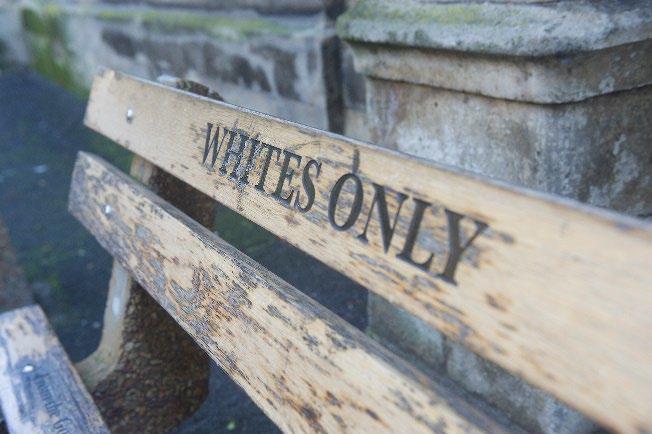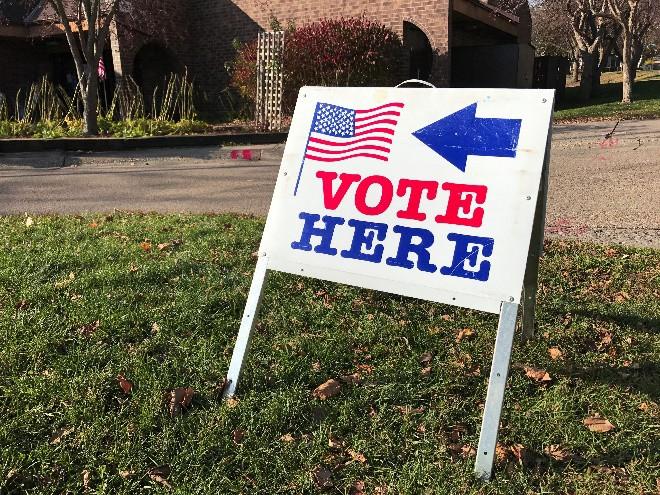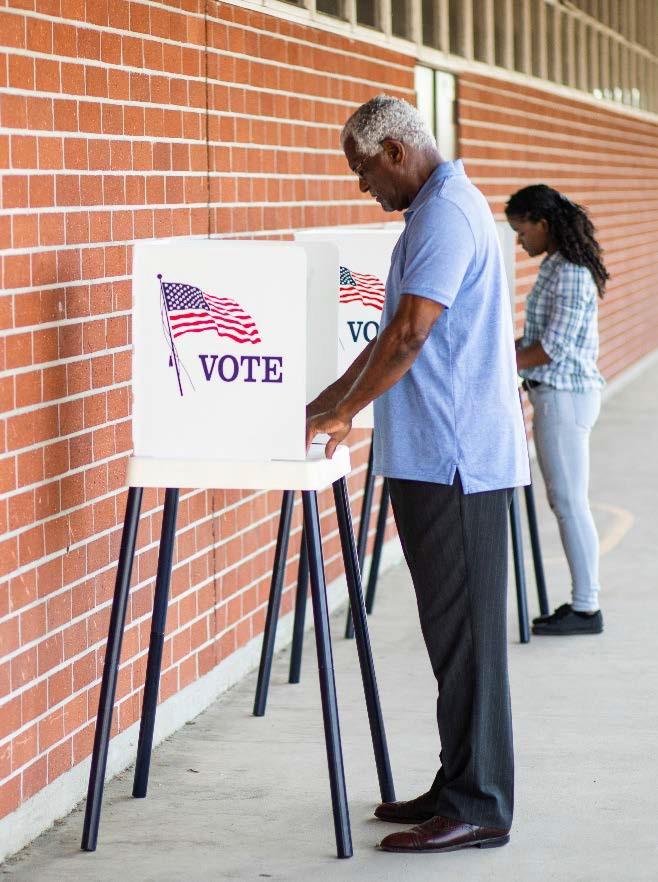
7 minute read
Open Wide Our Hearts: What is Systemic Racism?
What is Systemic Racism?
Today, racism continues to exist inour communities and in our parishes. Racism is what makes us see the "other"with suspicion or to attributenegative characteristics to an entire group ofpeople. This evil manifests itself in our individual thoughts, and also in the workings ofour society itself. Today's continuing inequalities in education, housing, employment, wealth, and representation in leadership positions are rooted in our country's shameful history of slavery and systemic racism.
Advertisement

Systemic Racism
Discrimination based on race and ethnicity takes many forms. The United States has made progress in eliminating some of the institutional, legalized racial discrimination of years past such as slavery, Jim Crowlaws, “separate but equal” schools, and prohibitions on voting or owning land. These hard-fought victories deserve to be remembered and celebrated.
Still, these advances are incomplete. Data on social and economic welfareshow disparities between many persons ofcolor and their white counterparts.
Unemployment rates for Africans Americans, Latinos, and Native Americans are considerably higher than the national average. Growing income inequality increasingly affects minorities. In the United States, median wealth for white households is tentimes greater than for blackhouseholds, and eight times greater than for Hispanic households. Minority homeownership rates lag behind their white counterparts, and yet research shows that minorities face extra hurdles in getting approved for mortgages. African Americans, Latinos, and Native Americans are disproportionately affected through every stage of the criminal justice system, despite the evidence that different racial and ethnic groups commit crimes at roughly the same rates.
What is Systemic Racism?
Racism’s Impact in our Communities
America remains a deeply divided place in many ways. Many Americans of all racial and ethnic backgrounds live in neighborhoods that are homogenous. This often limits the opportunity to learn from, interact with, and befriend people who are racially and ethnically different. Yet, having experiences living near those with different experiences and backgrounds can strengthen communities and the Body of Christ.
Many people of color living in low-income areas experience low or no upward economic mobility due to limited access to quality schools, safe neighborhoods, reliable transportation, or higher-paying jobs. Laws and practices in more affluentcommunities, such as refusing rent assistance vouchers, can prevent low income persons from moving into these communities. As a result, dialogue and encounter with others with diverse backgrounds, experiences, and opinions can be limited or non-existent. In Evangelii Gaudium (no. 59), Pope Francis noted that exclusion and inequality create the climate for discord. Recent violence in communities across the country and the hurtful rhetoric that mark conversations about refugees and migrants indicate that there is still much work to do.
As Christians, we are constantly called to examine our own hearts and consciences for how we might
“Racism can only end if we contend with the policies and institutional barriers that perpetuate and preserve the inequality—economic and social— that we still see all around us. With renewed vigor, we call on members of the Body of Christ to join others in advocating and promoting policies at all levels that will combat racism and its effects in our civic and social institutions.”
–U.S. bishops, Open Wide Our Hearts
contribute to or break down racial divisions, intolerance, and
discrimination. The failure to act to end systemic racism hurts those who are victimized and denies all of us the opportunity to benefit from the gifts of diversity.
This handout is excerpted from the Creating on the Margins Contest Packet. Visit usccb.org/youthcontestor usccb.org/concursojuvenil to learn more about Creating on the Margins, a contest for youth in grades 7-12 that educates youth about poverty in the U.S. and our Catholic response. The 2018-2019 theme is “A Time to Heal Racism.” The contest is sponsored by the Catholic Campaign for Human Development.
19

Racism and Voting
In the November 2018 pastoral letter against racism, Open Wide Our Hearts, the Catholic bishops of the United States urge all Catholics to acknowledge “the scourge of racism” that still exists in our hearts, words, actions, and institutions. Racism can be individual, when persons fail to recognize certain groups as created in the image and likeness of God and equal in dignity, or it can be systemic, where practices or policies treat certain groups of people unjustly. One example of systemic racism is lack ofaccess to the vote for some communities ofcolor.

The Church teaches that all persons have both a legal right and a responsibility to have their voice heard in the public square to promote human dignity and thecommon good of society. As people of faith, we have the obligation to help shape the moral character of society by voting and otheracts of public participation. We also must act to ensure that the right to vote is protected for all citizens. This has often been threatened for many minorities in theU.S. “Racism can only end if we contend with the policies and institutional barriers that perpetuate and preserve the inequality –economic andsocial –that we still see all aroundus.”
–U.S. bishops, Open Wide Our Hearts
Sixty years ago, the United States Commission on Civil Rights documented a history of pervasive discrimination toward minorities in all aspects of voting, despite the 1870 Fifteenth Amendment that prohibits denying citizens the right to vote because of "race, color, or previous condition of servitude.” Since the 1870s, threats of violence and actual violence, especially in the South, had been used to discourage African Americans from voting. Government officials openly opposed minority voting. For example, U.S. Senator Theodore Bilbo of Mississippi called for Klansmen to visit African Americans the night before elections to send a message that they should not try to vote. Poll“taxes” became a part of the election system in many states, requiring money from poor sharecroppers for voting privileges. Literacy tests were anothersystematic attempt to deny voters of color access to the voting booth: in states where educational opportunities for minorities were very limited, many African Americans had little
Racism and Voting
or no literacy skills. Some of these testswere designed so no one could pass, such as demands to recite the entire U.S. Constitution or to count the bubbles in abar of soap to prove math abilities. Gerrymandering, the practice ofredrawing voting district boundaries, was historically used to suppress the African American vote.
These injustices prompted the Voting Rights Act of 1965, which was initially successful in eliminating many of the barriers to voting for minorities. However, a 2018 Report by the U.S. Commission on Civil Rights detailed a decline in the Act’s enforcement. The report suggests Latino Americans, Native Americans, and African Americans are facing new barriers to voting. Some Catholic voices are raising concerns about voter identification laws seen in many states in recent years. The Maryland Catholic Conference opposed one such legislative proposal in 2017, which would “make voting more difficult for people with disabilities, the elderly, and the poor,” who “have already established their identities via voter registration.” (especially true in the South and onNative American reservations), and illegal purges of voting rolls, which disproportionately affect African-American and Latino American voters. One in ten Latinos have been harassed at polling places.

State Catholic conferences have also been vocal about other issues related to access to voting, including gerrymandering and restoration of voting rights. Others raise concerns about restrictions on early voting, lack of local and accessible registration opportunities and precinct voting locations Today, too many barriers to the right to vote remain for minorities. In response, we are called to work to ensure that all are able to exercise their rights, as faithful citizens, to raise their voices in the public square.
Pray with St. John Paul II
“Lord our God, you created the human being, man and woman, in your image and likeness, and you willed the diversity of peoples within the unity of the human family. At times, however, the equality of your sons and daughters has not been acknowledged, and Christians have been guilty of attitudes of rejection and exclusion, consenting to acts of discrimination on the basis of racial and ethnic difference. Forgive us and grant us the grace to heal the wounds still present in your community on account of sin, so that we will all feel ourselves to be your sons and daughters.” (Universal Prayer on Day ofPardon)










